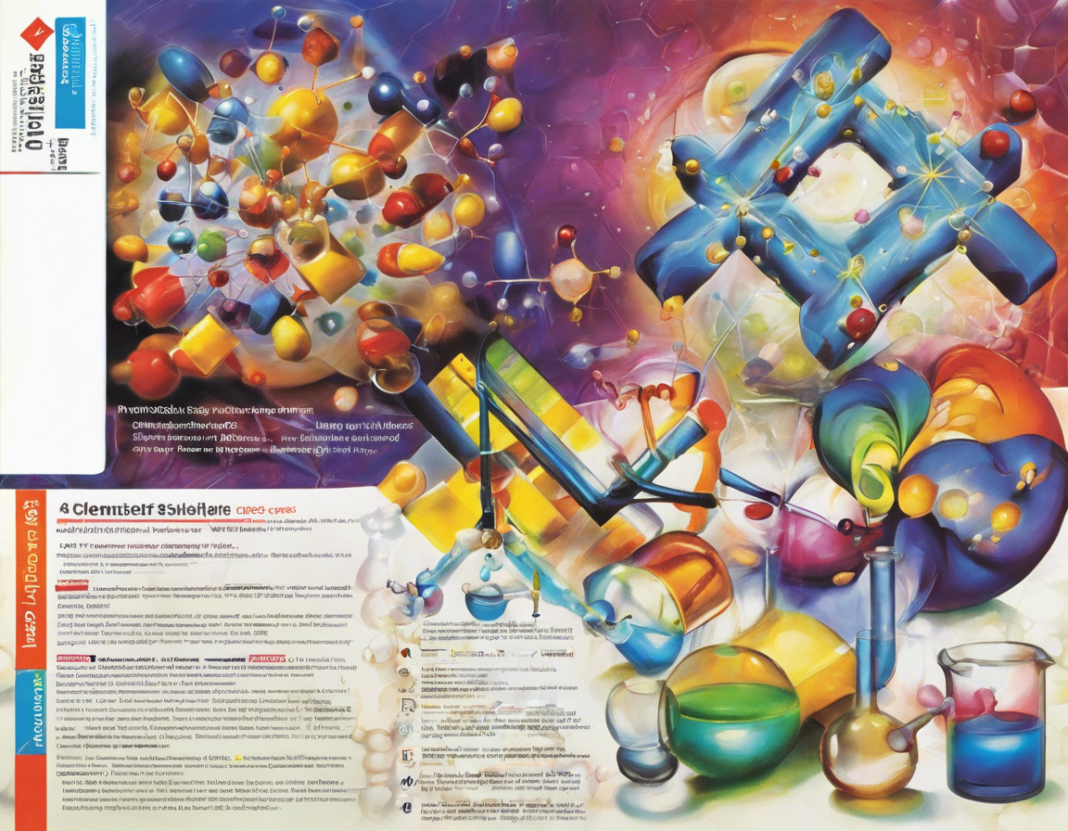Chemistry is a fascinating and intricate subject that is crucial for students pursuing science-related fields. With the right study materials and resources, mastering chemistry can become an achievable goal. In this comprehensive guide, we will delve into the essential topics covered in 11th-grade chemistry, focusing on key concepts, study tips, and resources to enhance your understanding of the subject.
Key Concepts in 11th-grade Chemistry
Atomic Structure
- Atoms: The building blocks of matter, consisting of protons, neutrons, and electrons.
- Atomic Number and Mass Number: Essential for understanding the characteristics of different elements.
Periodic Table
- Periods and Groups: Understanding the organization of elements based on their properties.
- Trends: Exploring patterns such as electronegativity, ionization energy, and atomic radius.
Chemical Bonding
- Ionic Bonds: Formed through the transfer of electrons between atoms.
- Covalent Bonds: Created by sharing electrons between atoms.
States of Matter
- Solid, Liquid, Gas: Understanding the behavior and properties of different states of matter.
- Phase Diagrams: Illustrating the relationships between temperature, pressure, and states of matter.
Chemical Reactions
- Balancing Equations: Ensuring the conservation of mass in chemical reactions.
- Types of Reactions: Including synthesis, decomposition, single replacement, and double replacement reactions.
Stoichiometry
- Mole Conversions: Converting between moles, mass, and particles.
- Limiting Reagents: Determining the reactant that limits the amount of product formed.
Study Tips for Excelling in 11th-grade Chemistry
-
Consistent Practice: Dedicate regular study sessions to reinforce key concepts and problem-solving skills.
-
Utilize Resources: Refer to textbooks, online resources, and practice problems to enhance your understanding.
-
Engage in Experiments: Conduct hands-on experiments to observe chemical reactions first-hand.
-
Form Study Groups: Collaborate with peers to discuss challenging topics and solve problems together.
-
Seek Help When Needed: Don’t hesitate to ask your teacher or tutor for clarification on difficult concepts.
Recommended Resources for 11th-grade Chemistry
-
NCERT Chemistry Textbook: Provides comprehensive coverage of essential topics for 11th-grade chemistry.
-
Khan Academy: Offers free video tutorials and practice exercises to reinforce key concepts.
-
Chemistry Olympiad Prep Books: Ideal for students looking to enhance their problem-solving skills and knowledge in chemistry.
-
Periodic Table App: Helps you quickly access information on elements, trends, and properties.
-
Online Chemistry Forums: Platforms like Reddit’s r/chemistry are great for asking questions and discussing concepts with fellow students and professionals.
Frequently Asked Questions (FAQs) on 11th-grade Chemistry
- What are the key topics covered in 11th-grade Chemistry?
-
The key topics include atomic structure, periodic table trends, chemical bonding, states of matter, chemical reactions, and stoichiometry.
-
How can I improve my understanding of chemical reactions?
-
Practice balancing equations regularly and explore different types of chemical reactions through experiments and online resources.
-
What are some effective study strategies for mastering 11th-grade Chemistry?
-
Consistent practice, utilizing resources, engaging in experiments, forming study groups, and seeking help when needed are effective study strategies.
-
Which online resources are best for learning Chemistry concepts?
-
Websites like Khan Academy, online forums, and chemistry apps can be valuable resources for learning and practicing Chemistry concepts.
-
How can I prepare for Chemistry exams in 11th grade?
- Create a study schedule, review class notes, solve past papers, and seek clarification on challenging topics to prepare effectively for exams.
By focusing on these key concepts, utilizing effective study tips, and leveraging recommended resources, students can enhance their understanding and excel in 11th-grade Chemistry. Consistent practice and a proactive approach to learning will pave the way for success in this complex and rewarding subject.

